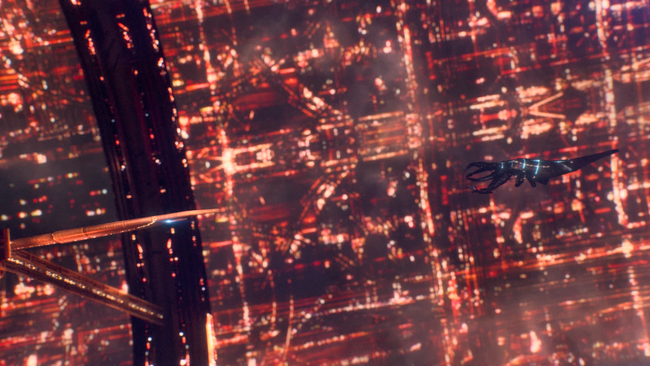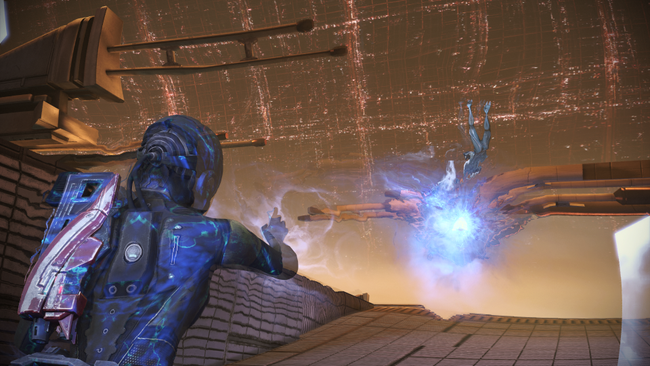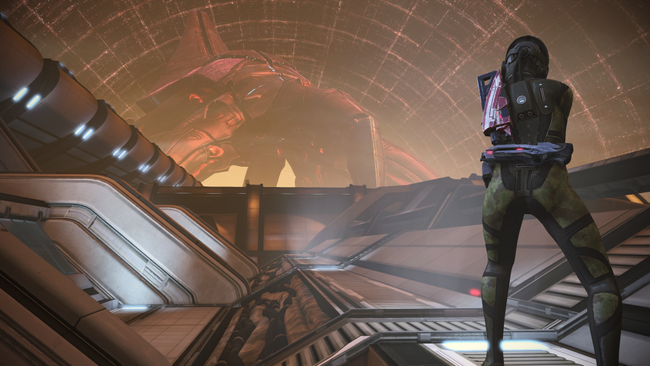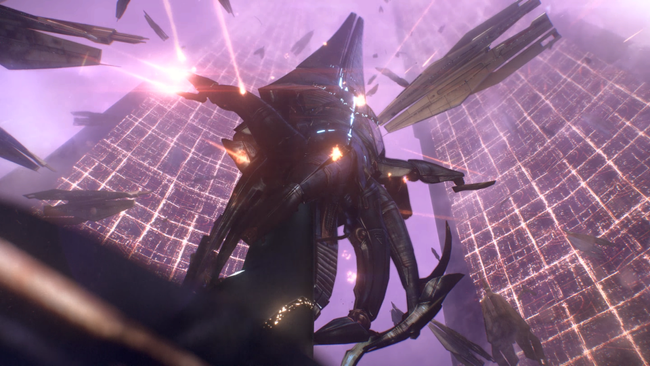
Mass Effect’s finale might be quietly better than 2’s beloved suicide mission
Hear me out for a second here. I know that people love the ending of Mass Effect 2, but having replayed the original fully in Legendary Edition… I think I might like the ending of the first game more?
I know, I know. The Mass Effect 2 Suicide Mission is undoubtedly one of the most iconic final missions in video game history. The tension is sublime. The way it interlaces with the relationships you’ve spent the game building and the choices you’ve made throughout is thrilling. Most importantly, within the confines of that assault on the enemy’s heartland, the smoke and mirror sorcery that powers Mass Effect’s choice-driven branching story is at its best there. While the strings in the background are visible if you look hard enough, it’s elegant enough to get away with that magic trick for most players - something which Mass Effect 3 thoroughly struggled with.
It’s fair to say that the finale of the first Mass Effect has little of that. In these ways, it is eclipsed. I tell you what it does have, though? Style.

The original Mass Effect was pitched as a space opera, and went hard on many science fiction concepts that were pretty outmoded at the time. You can probably see this most obviously in the game’s various armors - form-fitting and smooth, they’re a different breed of cool to the ‘heroic’ unique character outfits used in ME2 and 3, with the most iconic of course being Shepard’s bulky carbon-fibre looking N7 armor. The other place this energy is best depicted, however, is in Mass Effect’s final stretch.
There’s a sense of ambition and scale here that is unmatched in either sequel, both of which end in relatively enclosed spaces - an oppressive, dark enemy base and the streets of a fiery, war-torn Earth. Mass Effect has some of this in Ilos, the planet that you first visit at the beginning of its end, but it soon gives way to something bigger.
Ilos is a planet similar to many we see throughout the series - in ruins and beset by enemies. But after wiping out a few waves of Geth, a disquieting stillness settles over this planet. You drive through empty hallways filled with stasis pods, within which the last of an ancient race perished thousands of years ago. Where there are enemy encounters, they’re brief and perfunctory. It’s clear that these enemies are here only to delay you, not to stop you. Neither ME2 or 3 capture this feeling of a true race against time.
The best comes on the Citadel. After a mad cinematic dash for a mini Mass Relay encouraged along by an entirely unnecessary countdown timer, you’re thrown back to the hub of galactic civilization and the most recognizable location of your journey thus far. Except now it is ablaze. The hustle and bustle of life is gone, replaced by smoke and destruction.

When the elevator to the Citadel Tower stops, you’re given some of the best visuals in the Mass Effect trilogy. Shepard shoots out the elevator’s glass in a heroic shot, and out you step into the reduced gravity of the outside of the citadel - and it’s brilliant.
This section might be my favourite bit of all of Mass Effect, in fact. The combat might be aged and rather messy, but it’s actually quietly enhanced here. The low gravity makes Biotic powers feel even more overpowered and ridiculous than usual. You can simply push enemies off into the sky, where they disappear out of view, the only indication of their death the subdued click of the character XP gain.
The path you travel is narrow, but abundant with cover. The sky above you - which shows the other Citadel wards upside down, with you inside the giant space station’s closed arms - makes everything look enormous. But best of all is Sovereign itself.

The Reaper writhes at the tip of the Citadel. Its enormous tentacle-like claws smash down, and debris flies past you as you clamber your way up the tower towards it. We see a lot of Reapers throughout this series, especially in Mass Effect 3, but nothing in that game touches the feeling of the size and power of these enemies as this moment.
Shepard might be able to blast Geth off into space with biotic powers, but they are but an ant compared to Sovereign, their marshall. As you push up through ranks of Krogan, Geth, and annoying turrets, its presence is constant. Its size, and power, is undeniable.
The music helps along with this, alternating between high-pitched synthesized instrumenation that is befitting of the wonder of stepping out into the outer atmosphere of the Citadel for the first time and thrumming combat tunes with choral undertones shot through with the threatening musical theme Saren and Sovereign have shared all game.
The later Mass Effect games clearly had the word ‘epic’ on their mood board, but it’s achieved through a more traditional cinematic flair. The finale of Mass Effect feels much to have an unmatched scale - and the visuals are a stunning capper atop its unique older-school vibe.

More than anything, the sheer vision and ambition on show here is deeply impressive. Mass Effect 2 and 3 are games that were built with constraints clearly held in mind, but this first game’s ending is far more driven by pushing the engine and technology to the limits in aid of this story. Playing it on the original Xbox 360, it’s clear that in places it actually went too far - but in the Legendary Edition, those problems are gone.
We might be able to criticize Mass Effect for its cookie-cutter side quest planetary base design and for combat that often feels like you’re underwater, but one can’t say it isn’t ambitious - one only needs to look at this ending for proof of that.
Oh, and it’s not all killing. The ending of the game really begins with a lengthy, scintillating conversation with one of the last AI remnants of the Prothean Civilization on Ilos, which remains one of the best moments of the series. But then there's also a final boss you can talk into killing themselves - at least partially. Which, again, feels like a perfect cap to the way the game allows you to use dialogue up to that point.
Mass Effect’s finale is special, and excellent. While people will rightly remember the incredible tension of the suidice mission more loudly and proudly, the first game can take solace in the fact that it is, quietly, the Suicide Mission’s equal - just in very different ways.